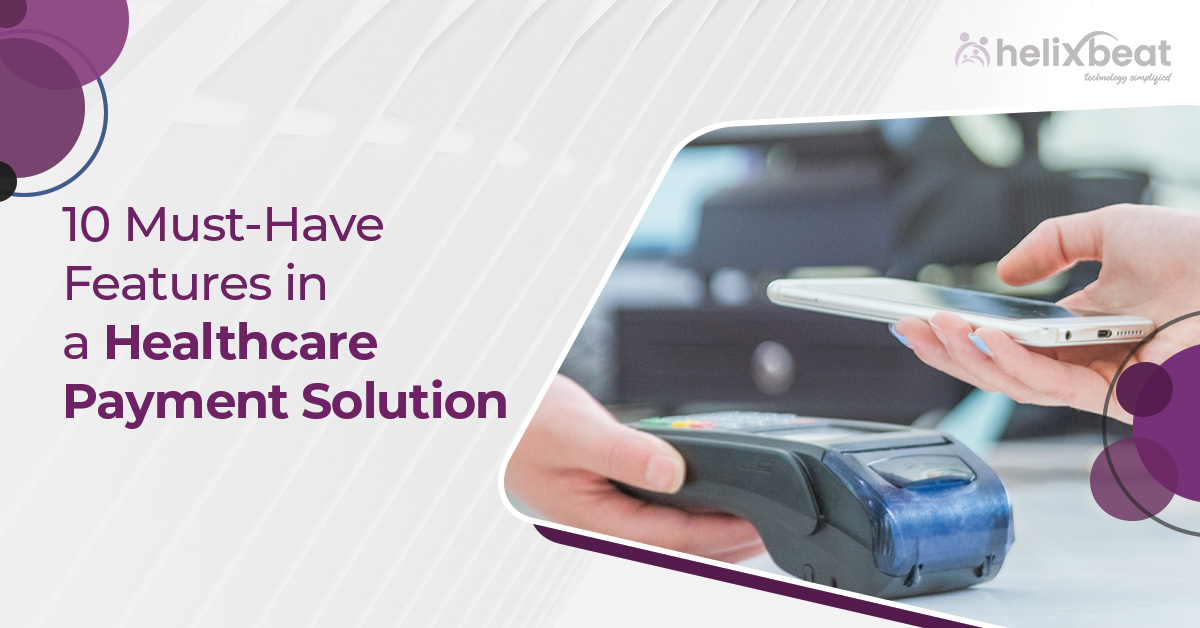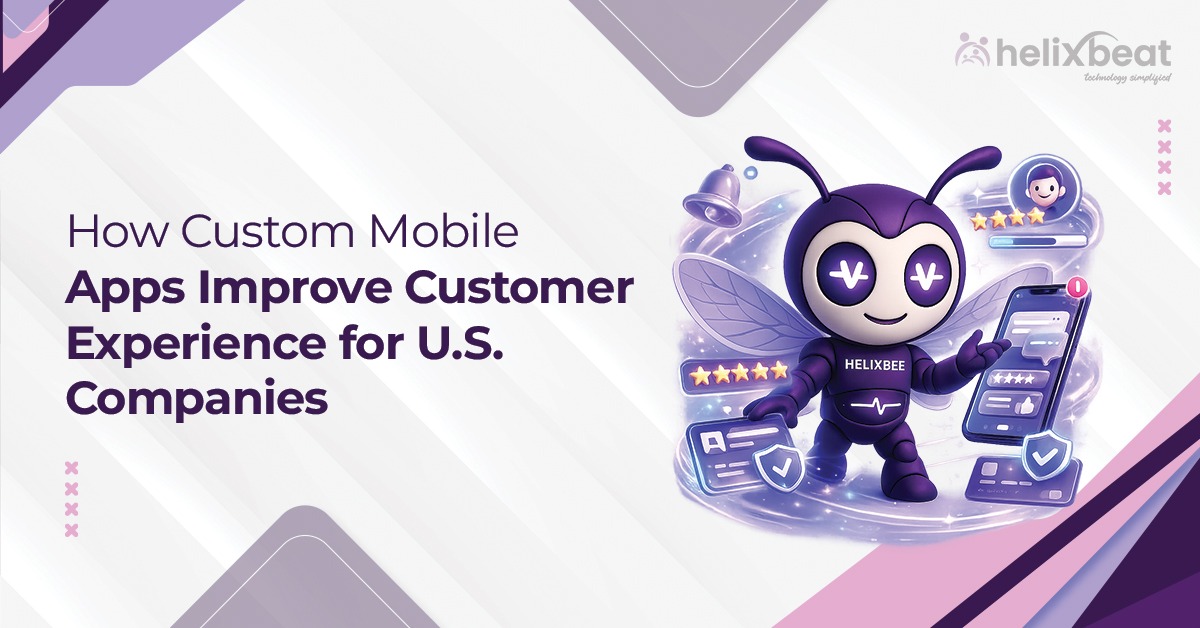Did you know that about 40% of medical bills contain errors? These errors result in losses either to the health facility or to the patient. Additionally, they increase medical claim rejections.
Don’t blame yourself if there are these many errors in your health facility. Most of them probably happened when you were doing your main duty – taking care of patients.
Nevertheless, it is safe to say that a medical billing system is paramount in your health facility.
Medical billing systems help you handle backend operations such as billing and documentation. This reduces errors and expands profitability in the health facility.
The trick, however, is to choose a system that has the features you will need in the medical billing software.
Are you looking for a healthcare payment solutions or need to replace your current one? Read on to understand why the software is a good investment and the must-have features of an ideal medical billing system.
Table of Contents
Why Do You Need a Healthcare Payment Solutions?
The days of handling medical bills with stacks of paper invoices, manual data entry, and endless claim disputes are long gone. If your healthcare facility is still struggling with slow, error-prone billing processes, it’s time for an upgrade. A modern healthcare payment solutions streamlines operations, improves cash flow, and enhances patient satisfaction.
Here’s why investing in a healthcare payment solutions is essential:
- Error-Free Billing – Manual billing is prone to mistakes, leading to incorrect charges, claim rejections, and revenue loss. Automated invoicing reduces these errors, ensuring accurate billing and faster reimbursements.
- Faster Payments – Integrated payment processing speeds up collections, minimizing delays caused by insurance claims and patient payments. With automated reminders and multiple payment options, you get paid on time.
- Better Patient Experience – A seamless, user-friendly billing system reduces patient frustration. Digital invoices, online payments, and flexible financing options make it easier for patients to settle their bills without confusion.
- Stronger Compliance – Healthcare regulations like HIPAA require strict data security. A reliable payment solution ensures compliance, safeguarding patient information while reducing the risk of fraud.
- Increased Profitability – Billing errors and delayed payments hurt your bottom line. By streamlining financial processes, you can minimize revenue loss and boost profitability.

A healthcare payment solutions isn’t just a convenience—it’s a necessity for financial stability and operational efficiency. Now, let’s explore the 10 must-have features that will make your system effective.
What Are the Important Features That a Healthcare Payment Solutions Should Have?
1. Should unified and automated payment and Billing Processing
Managing payments in healthcare is no small feat. Between insurance claims, patient self-payments, and reimbursements, financial reconciliation can become a nightmare. A centralized payment processing system simplifies this by consolidating all transactions into one seamless system. No more juggling between multiple accounts or struggling with manual entries. A streamlined system reduces administrative burdens and makes financial tracking a breeze.
Furthermore, a modern Secure payment gateway for healthcare should offer a variety of payment options, including credit and debit cards, bank transfers, and digital wallets. This ensures flexibility for patients and reduces the likelihood of missed payments. The result? Improved patient satisfaction and a smoother financial workflow for providers. With PayNova, managing healthcare transactions has never been easier.
2. Faster Payment Collection for Improved Cash Flow
Cash flow is the lifeline of any healthcare practice, and slow reimbursements can cripple financial stability. Manual billing and insurance delays often lead to long wait times before providers receive their payments. An automated payment system speeds up this process by streamlining transactions and ensuring funds reach providers on time. Faster processing means providers can focus on patient care rather than chasing payments.
For patients with large out-of-pocket expenses, an efficient system should support recurring payments and flexible payment plans. This reduces financial stress for patients and minimizes the risk of payment defaults. By automating the entire process, healthcare providers can maintain a steady cash flow and eliminate unnecessary administrative tasks. PayNova ensures timely and efficient collections, giving providers the financial stability they need.
3. Regulatory Compliance (HIPAA & PCI-DSS)
Security is paramount when handling patient financial data. Healthcare providers must comply with strict regulations like HIPAA and PCI-DSS to ensure data protection. A secure payment solution encrypts sensitive patient information, preventing unauthorized access and reducing the risk of data breaches.
HIPAA compliance guarantees that all patient financial details are handled securely, while PCI-DSS compliance ensures that card transactions are protected against fraud. These regulations aren’t just about legal compliance—they help build patient trust. Patients need to feel confident that their financial data is in safe hands. By choosing a Secure payment gateway for healthcare PayNova, providers can rest assured that their transactions are secure and fully compliant.
4. Seamless Integration with Healthcare Systems
Billing in healthcare is complex, often requiring synchronization with multiple systems. Secure payment gateway for healthcare should integrate effortlessly with Electronic Health Records (EHR) and Practice Management Systems (PMS) to streamline billing and reduce errors. When all systems work together, billing becomes faster, smoother, and more accurate.
Real-time insurance preauthorization and verification prevent delays by ensuring patients are covered for services before treatment begins. This reduces claim denials and unexpected out-of-pocket costs. With seamless integration, providers can reduce administrative burdens and improve financial accuracy. PayNova offers a fully integrated solution that simplifies billing and enhances operational efficiency.
5. Enhanced Patient Experience with Transparency
Billing transparency plays a significant role in patient satisfaction. Confusing invoices and hidden charges often lead to disputes and frustration. A well-designed payment system should provide patients with clear, itemized bills, ensuring they understand every charge.
Patient portals enhance convenience by allowing users to view invoices, track payment history, and set up automated payments. This self-service feature reduces administrative workload while empowering patients with financial clarity. A transparent billing process fosters trust and encourages timely payments. PayNova provides a user-friendly interface that ensures patients stay informed and engaged with their medical expenses.
6. Efficient Management of Multiple Revenue Streams
Healthcare providers generate revenue from various sources, including insurance claims, self-payments, partnerships with labs, and pharmacy transactions. Managing these multiple revenue streams efficiently is crucial for financial stability.
A strong payment solution should support third-party integrations to streamline financial workflows. It should also facilitate cross-provider collaboration, ensuring that payments are allocated accurately across departments and partner institutions. PayNova simplifies revenue management, making multi-stream payments effortless and error-free.
7. Advanced Financial Reporting & Analytics
Data-driven decision-making is essential for healthcare providers aiming to optimize revenue cycles. A robust payment solution should provide real-time insights into financial performance, helping providers analyze revenue trends and optimize cash flow management.
Comprehensive financial reports allow administrators to track outstanding balances, identify payment bottlenecks, and improve operational efficiency. With detailed reporting tools, healthcare organizations can make informed financial decisions. PayNova offers advanced analytics that empowers providers with accurate and actionable financial insights.
8. Error Reduction and Fraud Prevention
Manual billing processes are prone to errors, leading to incorrect charges, claim denials, and patient dissatisfaction. Automation helps eliminate human errors by ensuring accurate calculations and timely claim submissions.
Fraud prevention mechanisms, such as encryption and multi-layer security, protect against unauthorized transactions. By securing every payment, healthcare providers can prevent financial fraud and ensure patient data remains protected. PayNova’s automated error detection and security protocols minimize risks and enhance billing accuracy.
9. Support for Telehealth and Remote Payments
With telehealth services on the rise, healthcare payment solutions must cater to remote consultations and digital prescriptions. Patients should be able to pay for virtual appointments as seamlessly as they would for in-person visits.
A well-integrated Secure payment gateway for healthcare should support flexible payment options, such as online transactions and mobile payments. Additionally, integration with telehealth platforms ensures a seamless billing process, enabling a frictionless experience for both patients and providers. PayNova bridges the gap between virtual care and financial transactions, making remote healthcare more accessible and convenient.
10. Dispute Resolution and Refund Processing
Payment disputes and refund requests are inevitable in healthcare. A structured dispute resolution process helps providers handle billing discrepancies efficiently, maintaining patient trust and satisfaction.
Automated dispute tracking ensures that issues are resolved promptly, while a streamlined refund process prevents unnecessary delays. Quick resolutions reduce administrative burdens and enhance patient-provider relationships. PayNova simplifies dispute management, ensuring that every transaction is handled fairly and efficiently.

One more feature – Automated Insurance Claim Processing
Filing insurance claims manually is time-consuming and prone to errors, leading to delayed reimbursements and denied claims. An automated insurance claim processing feature accelerates claim submissions, ensuring accuracy and timely payments.
With real-time claim validation, providers can detect errors before submission, reducing rejection rates. Automated workflows simplify claim tracking and status updates, ensuring healthcare providers are always informed. PayNova offers a seamless claim processing solution that enhances revenue cycles and minimizes administrative workload.
Conclusion
In conclusion, choosing the right healthcare payment solutions is crucial for the success of your healthcare business and the satisfaction of your patients.
By following our guide, you will better understand the different types of healthcare payment solutions available and the key factors to consider when making your decision.
Whether you are a small practice or a large healthcare organization, the right payment solution can help you streamline your payment process, increase efficiency, and provide a positive patient experience.
Remember, the right payment solution depends on your needs, budget, and patient preferences.
PayNova delivers a complete solution that meets these needs, ensuring smooth, secure, and efficient healthcare payments.
Contact us today and get a quote from PayNova’s healthcare payment solutions!
Frequently Asked Questions (FAQs):
- What is a healthcare payment solution?
A healthcare payment solution is a system that automates billing, invoicing, and payments for healthcare providers, ensuring accuracy and efficiency.
- Why is a healthcare payment solution important?
It reduces billing errors, speeds up payment collection, ensures regulatory compliance, and enhances the patient experience.
- How does a healthcare payment solution improve cash flow?
It automates transactions, reduces claim rejections, and provides multiple payment options to ensure timely payments.
- What security measures should a healthcare payment system have?
It should comply with HIPAA and PCI-DSS regulations, offer encryption, and use fraud prevention tools.
- Can a healthcare payment solution integrate with EHR systems?
Yes, a good solution integrates with Electronic Health Records (EHR) and Practice Management Systems (PMS) for seamless billing.
- Does a healthcare payment system support multiple payment methods?
Yes, it should accept credit/debit cards, bank transfers, digital wallets, and installment plans.
- How does a payment solution enhance the patient experience?
It offers online billing, transparent invoices, flexible payment options, and automated reminders for easier payments.
- What features should I look for in a healthcare payment solution?
Key features include automated billing, regulatory compliance, fraud prevention, real-time reporting, and integration with healthcare systems.














